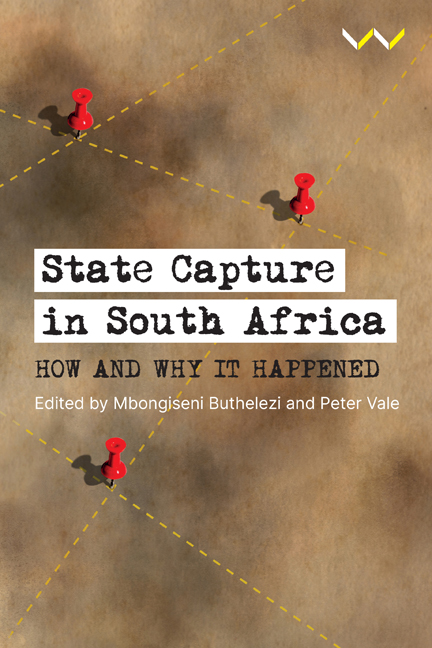Introduction: Understanding and Explaining State Capture
Published online by Cambridge University Press: 28 February 2024
Summary
LIFE MIRRORING FICTION
‘From the day a few years before when I had left Parliament depressed and aggrieved, I had felt, like so many other educated citizens of our country, that things were going seriously wrong without being able to say just how’ (Achebe [1966] 2001, 35). These words are spoken by Odili Samalu, the narrator of Chinua Achebe's novel A Man of the People, who tells the story of his country's postcolonial transition. After studying in the capital city, Odili has chosen to return to teach in a small village in his home region rather than work in an office in the capital, because he is disillusioned by the mismanagement of the country and the corruption he sees taking hold.
Later, in the same passage, he observes: ‘We complained about our country's lack of dynamism … We listened to whispers of scandalous deals in high places – sometimes involving sums of money that I for one didn't believe existed in the country … But sitting at Chief Nanga's feet I received enlightenment; many things began to crystallize out of the mist – some of the emergent forms were not nearly as ugly as I had suspected but many seemed much worse’ (Achebe [1966] 2001, 35).
The year is 1960. Chief Nanga is Odili's former teacher who has become a corrupt, philandering minister in the national government. The country is led by the People's Organisation Party, which, it is revealed later, takes a 10 per cent cut off state contracts for its coffers (Achebe [1966] 2001, 106–107). The opposition Progressive Alliance Party offers no alternative as some of its members defect to the People’s Organisation Party as soon as they are elected in order to access positions of power and opportunities to ‘chop’ – the colloquial phrase used for personal enrichment.
Odili eventually joins a group to launch a new party that runs for election against the People's Organisation Party and contests Nanga's seat. But the group is swiftly crushed through the deployment of private armies, thugs and state power, including the police and the revenue authority.
- Type
- Chapter
- Information
- State Capture in South AfricaHow and Why It Happened, pp. 1 - 16Publisher: Wits University PressPrint publication year: 2023



